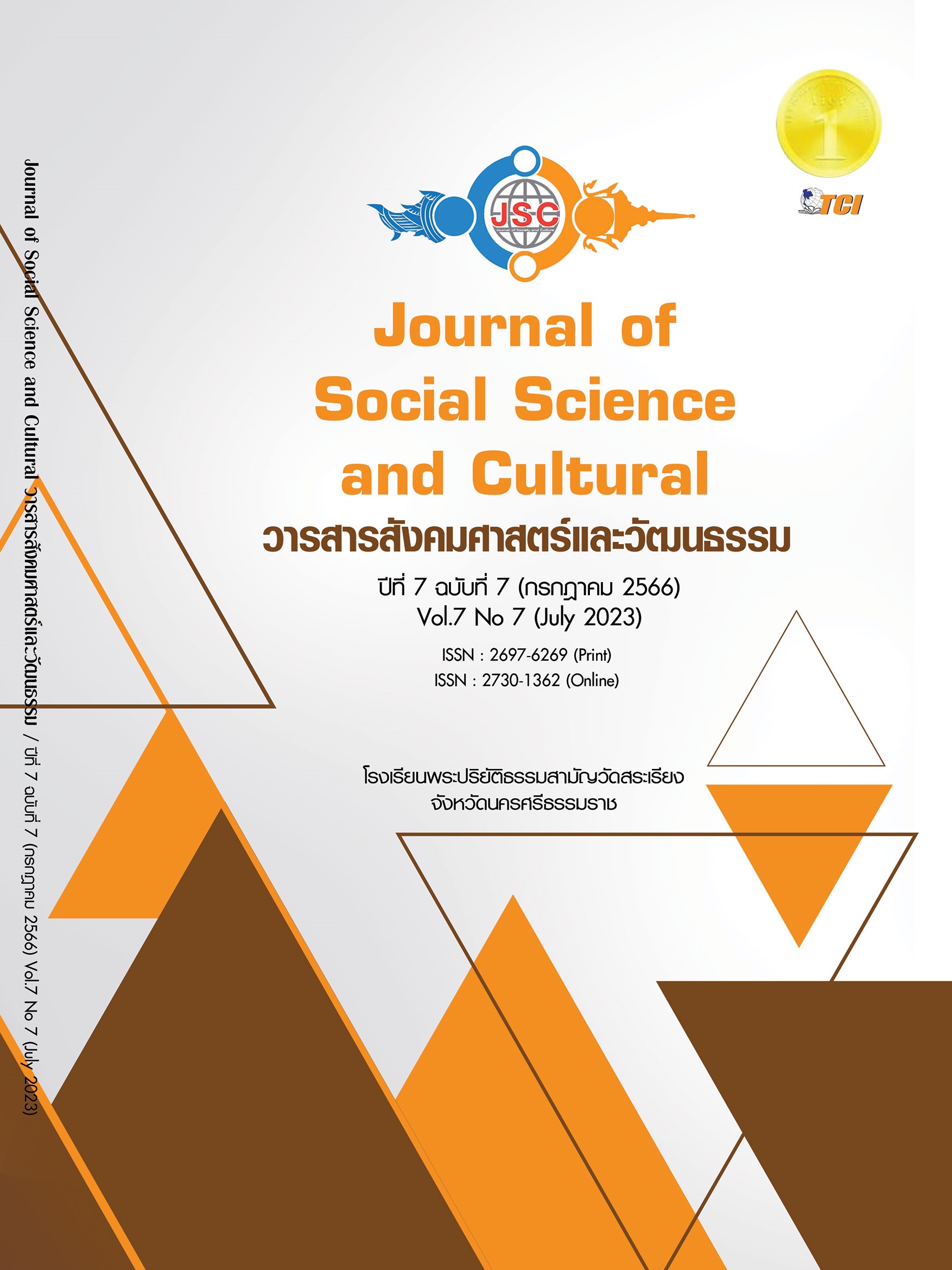CREATION OF A QUALITY ASSESSMENT QUESTIONNAIRE FOR RUGBY FOOTBALL REFEREE PERFORMANCE INDICATORS
Main Article Content
Abstract
Objectives The purpose of this study was to extract the components, indicators, model performance measurement model of rugby football referees and assessing the quality of performance indicators of rugby football referees. This research used Mixed Method Research with Equal Status Sequential Design. The sample group in this study, professionals with experience in national and international rugby football referees were divided into two groups, consisting of five experts for semi-structured interviews to extract the body elements. Indicators and measurement models for rugby football referee performance indicators. After that, the quality of components, indicators, and measurement models created with the Modified Delphi Technique by 17 experts will be conducted to create a performance measurement model of the referee model. Rugby Football and Quality Assessment Performance Indicators of Rugby Football Referees. The results showed that Based on the performance measurement model of rugby football referees, 11 competencies were classified. From assessing the quality of performance indicators of rugby football referees both 11 aspects are correct and appropriate. Passed the evaluation criteria from experts. In conclusion, the results of the study showed that performance indicators personality morality, ethics and professional ethics communication Teamwork physical fitness Achievement-oriented Consciousness in work The accumulation of expertise skills in performing duties necessary knowledge, and the attitude towards being a judge It is an accurate and suitable competency for evaluating the quality of rugby football referees. It should be applied to assess competency of rugby football referees.
Article Details
References
Baldwin, C. (2010). Fairness and Subjectivity: Auto-Ethnography of a First Time Rugby Referee. Journal of Qualitative Research in Sports Studies, 4(1), 65-81.
Baldwin, C., & Vallance, R. J. (2015). The Art of Sports Officiating: Learning How to Referee Rugby Union. Graduate Journal of Sport, Exercise & Physical Education Research, 2015(3), 27-43.
Blair, M., et al. (2017). Contextual Review of Physical Requirements of Refereeing Rugby Union at an Elite Level. Strength and Conditioning Journal, 40(2), 17-30.
Chiwaridzo, M., et al. (2017). A Systematic Review Investigating Measurement Properties of Physiological Tests in Rugby. BMC Sports Science, Medicine and Rehabilitation, 9(1), 11-24.
Cunningham, I., et al. (2012). Decision Making and Decision Communications in Elite Rugby Union Referees: An Inductive Investigation. Sport & Exercise Psychology Review, 8(2), 23-34.
Dosseville, F., et al. (2016). Sports Officials in Home Advantage Phenomenon: A New Framework. International Journal of Sport and Exercise Psychology, 14(3), 250-254.
Hill, D., et al. (2015). Ineffective and Effective Coping Strategies Associated with Professional Rugby Union Referees. In Base Conferernce 2015. St. George’s Park. University of Gloucestershire.
Hill, D., et al. (2016). The Psychological Characteristics of Performance under Pressure in Professional Rugby Union Referees. The Sport Psychologist, 30(4), 376–387.
Jacobs, B. L., et al. (2020). Exploring Referee Abuse through the Lens of the Collegiate Rugby Coach. Sport Management Review, 23(1), 39-51.
Karaçam, A., & Pulur, A. (2017). Examining the Relationship between Referee Self-Efficacy and General Self-Efficacy Levels of Football, Basketball and Handball Referees. Universal Journal of Educational Research, 5(9), 1571-1579.
Kural, S., & Aydın, F. (2021). Examining Self-Efficacy Levels of Football Referees. Baltic Journal of Health and Physical Activity, 13(7), 123-130.
Le Roux, C., et al. (2021). The Physical Attributes of Sub-Elite Rugby Union Referees of Inland Provinces in South Africa. South African Journal of Sports Medicine, 33(1), 1-6.
Lewis, M., et al. (2023). Analysis of Referee in-Game Interactions with Players and Other Officials in Professional Rugby Union Analysis of Referee in-Game Interactions with Players and Other Officials in Professional Rugby Union. International Journal of Performance Analysis in Sport, 23(3), 232-248.
MacMahon, C., et al. (2007). Decision-Making Skills and Deliberate Practice in Elite Association Football Referees. Journal of sports sciences, 25(1), 65 - 78.
Mathers, J. F., & Brodie, K. (2011). Elite Refereeing in Professional Soccer: A Case Study of Mental Skills Support. Journal of Sport Psychology in Action, 2(3), 171 - 182.
McCarrick, D., et al. (2019). Personality Characteristics of Uk Soccer Referees. Journal of Sport Behavior, 4(42), 493-508.
Mellick, M., et al. (2011). Identifying Best Practice for Referee Decision Communication in Association and Rugby Union Football. Football Studies, 8(1), 42-57.
Moore, L. J., et al. (2019). Perceptual-Cognitive Expertise When Refereeing the Scrum in Rugby Union. J Sports Sci, 37(15), 1778-1786.
Nazarudin, M. N. B., et al. (2014). Psychological Skills Assessment and Referee Rugby Sevens Performance. Journal for Educational Thinkers, (2014)5, 165-184.
O’Brien, K. A., & Rynne, S. B. (2021). Seen but Not Heard: Missing the Mark in Conceptualizing High Performance Officiating. Sport in Society, 24(7), 1110-1121.
Płoszaj, K., et al. (2021a). Assessment of Referees in Terms of Building a Positive Climate and Responsiveness to the Health, Emotional, and Social Needs of Rugby Players in Competitive Children Sport. Int J Environ Res Public Health, 18(19), 10086.
Płoszaj, K., et al. (2021b). Positive Behavior Management: Assessment of Rugby Referees in Children Sport. Int J Environ Res Public Health, 18(20), 10949.
Sant'Anna, R., et al. (2020). Rugby Union Referees’ Physical and Physiological Demands across Different Competitive Levels. The Journal of Sports Medicine and Physical Fitness, 61(6), 788-796.
Spitz, J., et al. (2016). Visual Search Behaviors of Association Football Referees During Assessment of Foul Play Situations. Cognitive Research: Principles and Implications, 1(1), 1-11 .


